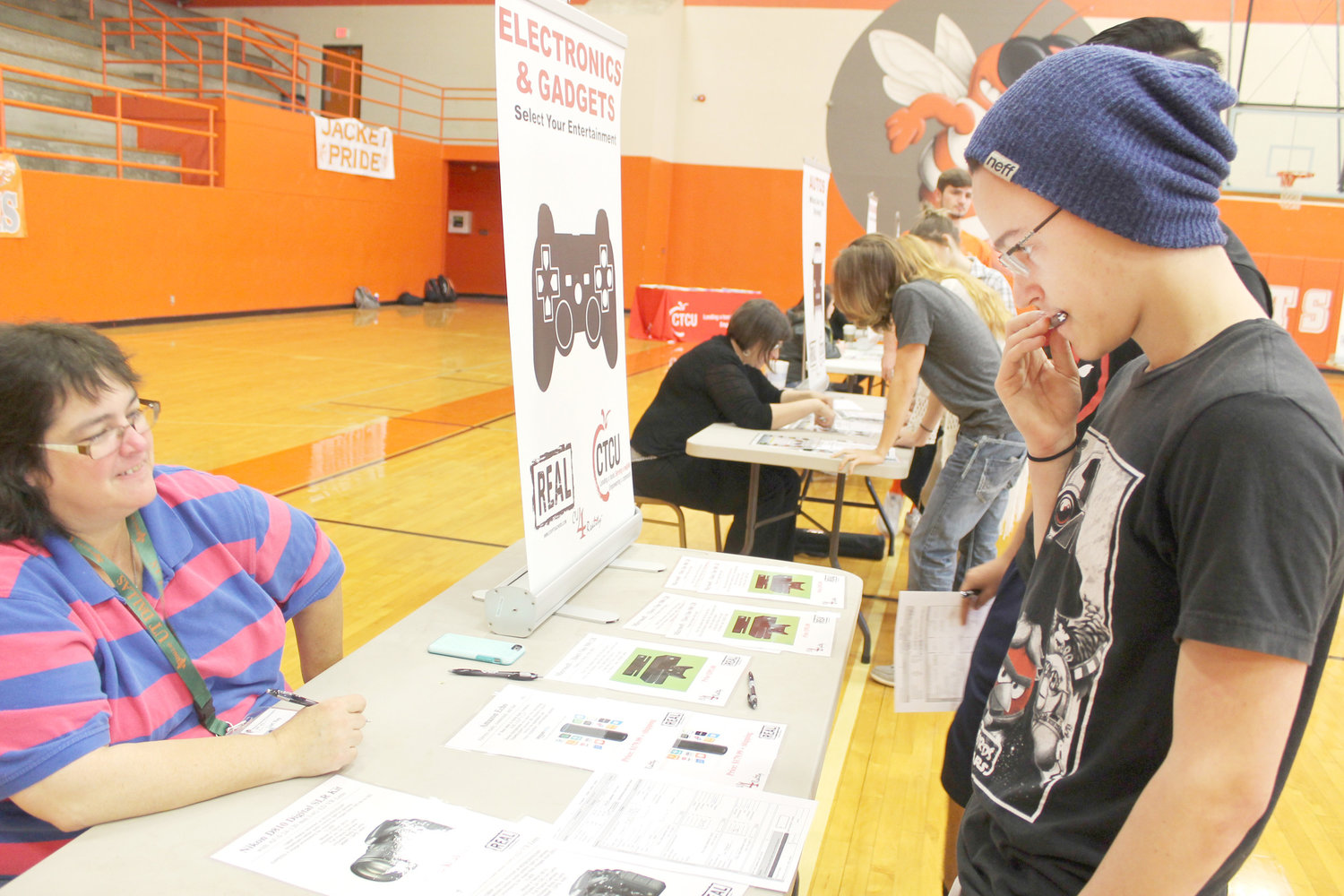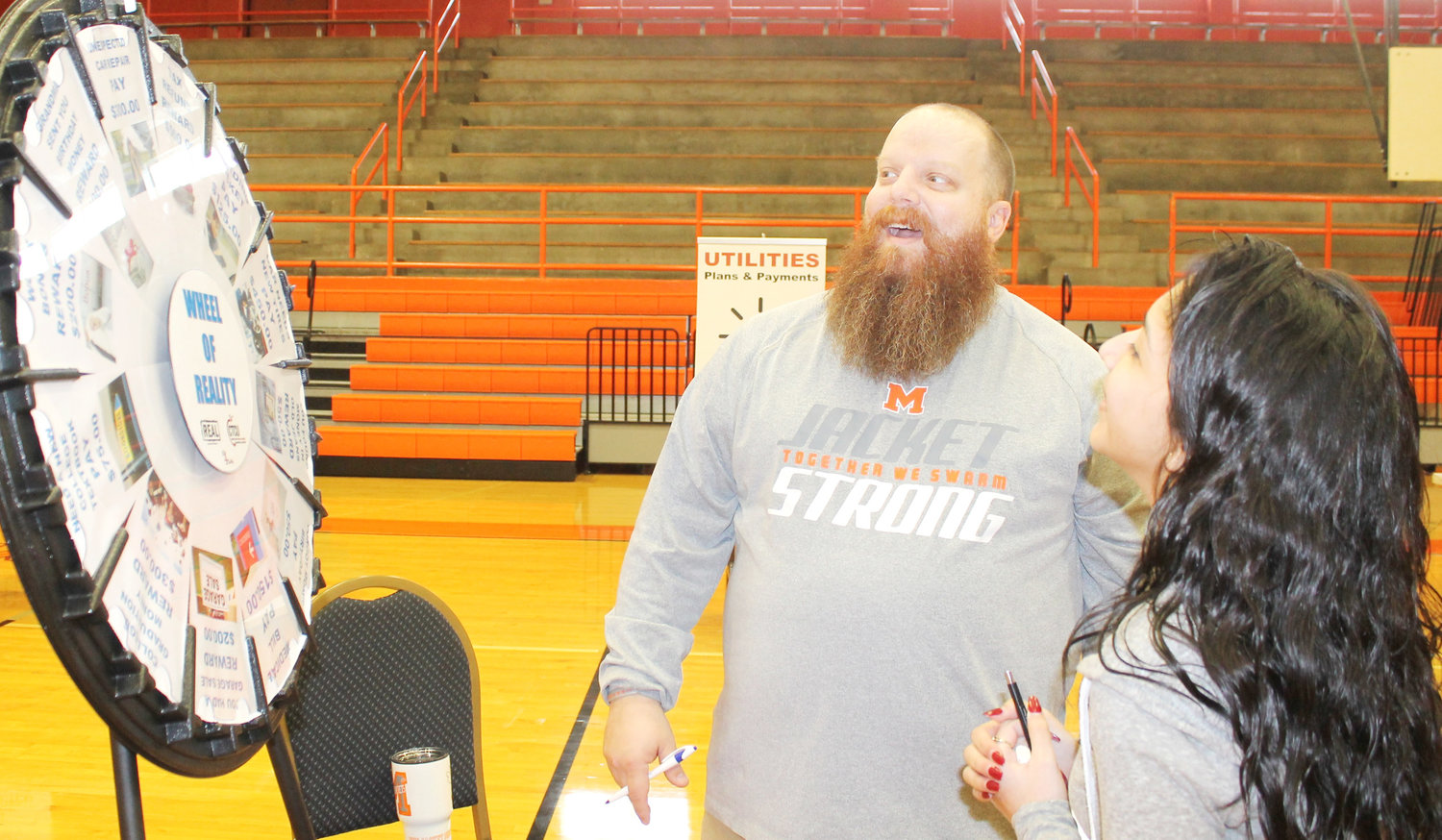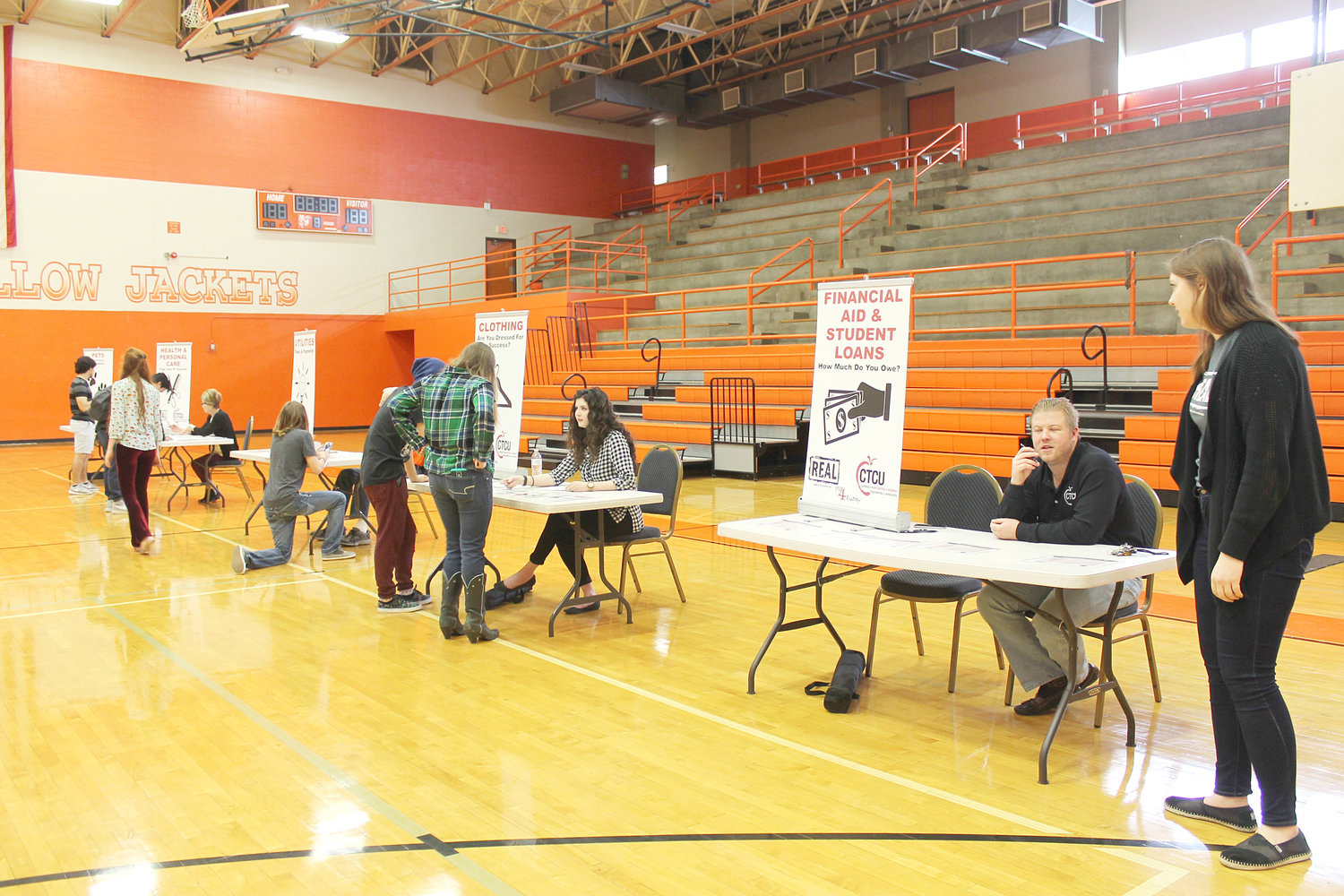Students practice making financial decisions during “reality fair”
editor@woodcountymonitor.com
The Wheel of Reality whirred clockwise at a fast clip. As its whirling slowed the images on it became less of a blur and the clacking more pronounced. Each student waited in anticipation of its …
This item is available in full to subscribers.
Attention subscribers
To continue reading, you will need to either log in to your subscriber account, or purchase a new subscription.
If you are a current print subscriber, you can set up a free website account and connect your subscription to it by clicking here.
If you are a digital subscriber with an active, online-only subscription then you already have an account here. Just reset your password if you've not yet logged in to your account on this new site.
Otherwise, click here to view your options for subscribing.
Please log in to continueNeed an account?
|
Students practice making financial decisions during “reality fair”



editor@woodcountymonitor.com
The Wheel of Reality whirred clockwise at a fast clip. As its whirling slowed the images on it became less of a blur and the clacking more pronounced. Each student waited in anticipation of its random determination of whether they would have to pay or would receive unexpected money when the needle landed.
It was the final factor affecting their make-believe budgets during the Financial Reality Fair. The event was put on by the Cooperative Teachers Credit Union March 10 in the Mineola High School gym. After studying financial literacy curriculum provided by the CTCU for the prior two weeks, approximately 96 MHS seniors got to practice making decisions that resulted in them either having a negative balance or having money left over in their fictional budgets at the end of the month.
Suzette Farr is the marketing and business development director for the CTCU and explained the service the cooperative provides for free.
Farr said students were given a choice of over 100 careers of which the cooperative averages state and national entry level pay to base their salaries. Taxes are withheld before they ever get their money. The students are provided budgets based on the salaries and then they visit 12 booths where they make choices about fixed, variable and discretionary expenses. They are also asked if they want to put $5 or $10 a month in their credit union savings account. “You’re not going to be able to pay any bill with $5 or $10 a month so you might as well save it,” Farr pointed out.
The booths ranged from expenses for food, utilities, cable, internet and phone service to housing, vehicles and electronic gadgets. When they finished making their choices they faced the grim Wheel of Reality, manned by AVID Teacher Jason Goodson. Occasionally Goodson would emit a gleeful chuckle as a student shrugged and looked down at the floor. By the twist of fate, much as in real life, they either got to add money for a variety of reasons including grandma gave them some for their birthday or subtract for other just as typical occurrences such as getting a speeding ticket or having medical expenses.
After this stop the students went to the credit counseling table where their revenues were added and expenses were deducted. One of the students, Jaime Hernandez, waited his turn to speak to the counselors. Asked how he had done, he shook his head. “I shouldn’t have gotten the dog,” he said.
At the table of electronics and gadgets, Lori Ray offered choices. But one young woman already had her mind set when she approached her table. “Hello,” Marie Ferguson said cheerily. “I’m here to get nothing” as her budget was validated for visiting the booth and she left. Another student, Jacob Hagan gave the fair good marks saying “I think it’s pretty cool. I’ve never done anything like this.” Dylan Geary stood back from the Wheel of Reality grinning broadly as he offered loans because he had plenty money left over in his budget.
Once they had completed the exercise the students were to review their budgets with their teachers.
“We want to provide everyone in our area with financial literacy because the last thing we want is for them to go into debt,” Farr said. She said that most people learn their financial habits when they are young from the adults in their lives and what they see them doing.
“If no one has ever sat you down and talked to you about savings, you don’t know what that is. If no one’s ever talked to you about goal setting, investing, about loans, insurance, financial products and services because we teach all of these things, you’re not going to know. That’ what happens to most of the adults in our society.”
The credit union wants to provide tools and resources that the high school students need from the beginning so when it comes time to get a loan for a car or a house, “they’re ready. They’re set.” They understand about making payments and further responsibilities.
“So, for us the way we look at things, financial literacy is a core subject,” Farr said.
While some of the students’ budgets weren’t coming out with positives, the school counselors saw plusses resulting from the fair. “This is so eye-opening,” said Michelle Dudley. “I’ve had several who have said `I need to go back and get a different (less expensive) car.’” Melisia Foster realized there was also a byproduct of what the students were learning. “I’ve been amazed at how many have learned to be thankful for what their parents are providing.”
CTCU plans to provide more fairs at other schools, including Lindale on April 7 and at a future date in Winona. They also offer retirement fairs for adults and are planning a Wine, Women and Wealth event coming up. Anyone with an organization interest in offering such an event can contact Farr through the Cooperative Teachers Credit Union.








